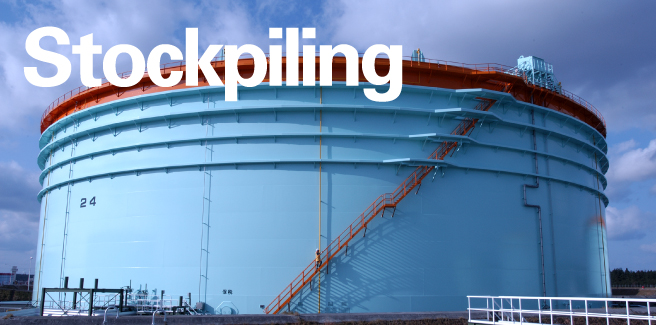
Oil prices fell on Thursday, with U.S. crude
retreating from three-month highs as refinery maintenance threatened to
raise record inventories of crude and sources said an OPEC production
freeze meeting was unlikely without Iran's participation.
An initial rally in the dollar
after the European Central Bank cut its key lending rate to zero also
pressured oil, although crude prices recovered from their lows as the euro rebounded on ECB comments that more cuts were unlikely.
Brent crude futures
were down $1.32 at $39.75 a barrel by 11:30 a.m. ET (1630 GMT), having
earlier this week peaked at $41.48, the highest level since Dec. 9.
U.S. crude fell $1.07 to $37.22 per barrel, having hit $38.51 on Tuesday, also its highest since Dec. 9.
But some analysts said on Thursday last week's
gasoline stock build, which was triple expectations, could be partly due
to the market transitioning from winter-grade to summer-grade motor
fuel. They also said the U.S. refinery maintenance season could push
crude stockpiles to even bigger highs.
Global demand for crude oil typically dips when refineries around the world enter seasonal maintenance in spring, ahead of peak summer demand.
Prices rose as much as 5 percent on Wednesday, after a big gasoline inventory drawdown in the United States overshadowed record-high crude stockpiles. But analysts warned that a global crude production overhang of more than 1 million barrels per day (bpd) showed few signs of abating.
"It looks like the market is still ignoring crude inventories," said Scott Shelton, energy broker at ICAP in Durham, North Carolina.
The focus lies on a potential agreement to rein in output between producers from the Organization of the Petroleum Exporting Countries, led by Saudi Arabia, and non-OPEC exporters including Russia.
A meeting between oil producers to discuss a global pact on freezing production is unlikely to take place in Russia on March 20, sources familiar with the matter say, as OPEC member Iran is yet to say whether it would participate in such a deal.
"The idea that meeting may not happen at all is definitely weighing on the market," said Tariq Zahir, who mostly trades in U.S. crude oil spreads at Tyche Capital Advisors in New York.
Global demand for crude oil typically dips when refineries around the world enter seasonal maintenance in spring, ahead of peak summer demand.
Prices rose as much as 5 percent on Wednesday, after a big gasoline inventory drawdown in the United States overshadowed record-high crude stockpiles. But analysts warned that a global crude production overhang of more than 1 million barrels per day (bpd) showed few signs of abating.
"It looks like the market is still ignoring crude inventories," said Scott Shelton, energy broker at ICAP in Durham, North Carolina.
The focus lies on a potential agreement to rein in output between producers from the Organization of the Petroleum Exporting Countries, led by Saudi Arabia, and non-OPEC exporters including Russia.
A meeting between oil producers to discuss a global pact on freezing production is unlikely to take place in Russia on March 20, sources familiar with the matter say, as OPEC member Iran is yet to say whether it would participate in such a deal.
"The idea that meeting may not happen at all is definitely weighing on the market," said Tariq Zahir, who mostly trades in U.S. crude oil spreads at Tyche Capital Advisors in New York.
Most analysts expect the oil glut to last into 2017 or even 2018, resulting in low prices.
Only by 2020 is there a consensus for prices to rise towards $70 a barrel, based on low investment in production.
The European Central Bank cut all
three of its interest rates and expanded its asset-buying programme on
Thursday, delivering a bigger-than-expected cocktail of actions to boost
the economy and stop ultra low inflation becoming entrenched.
Surprising markets, it cut its main refinancing rate to zero from 0.05 percent.
No comments:
Post a Comment